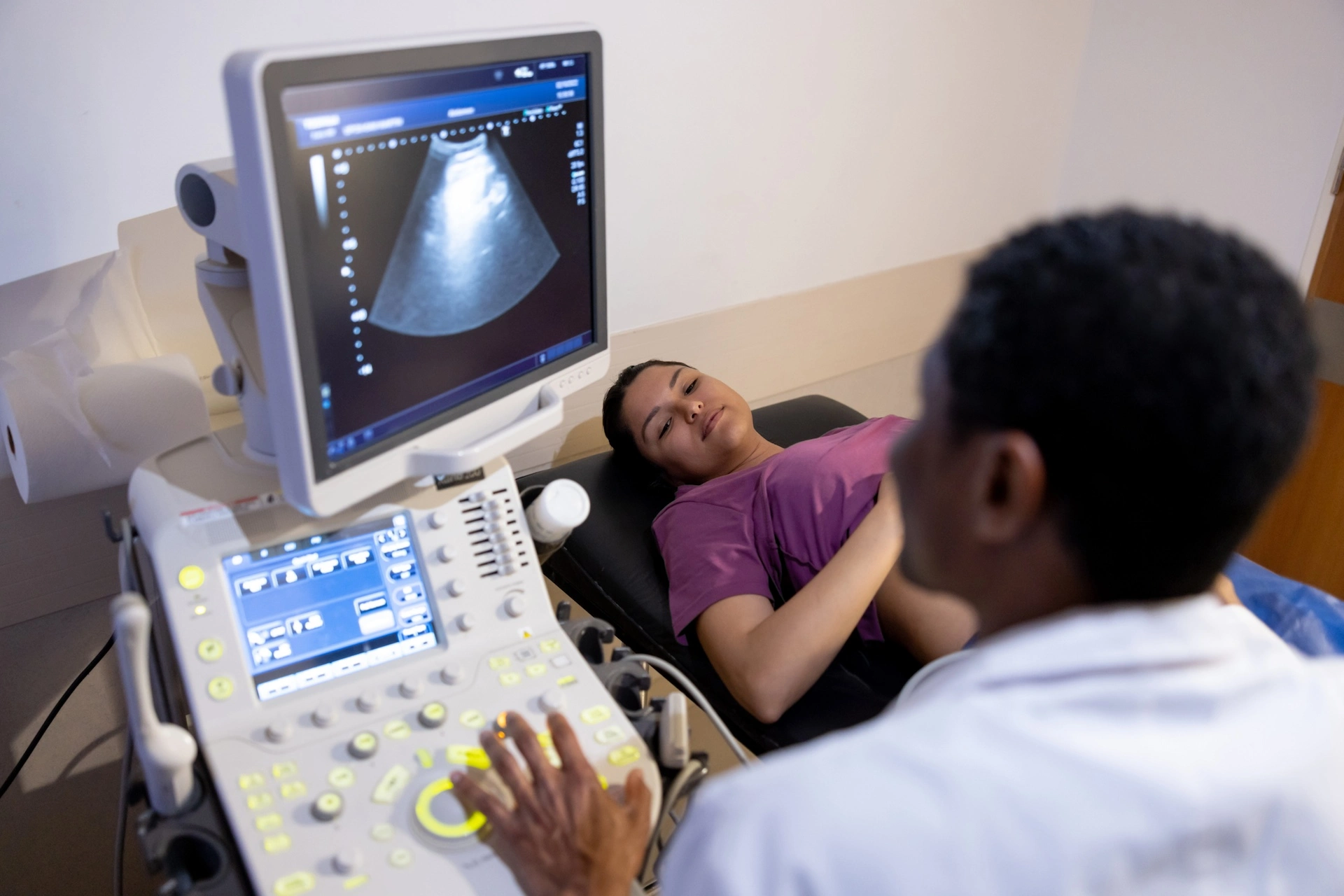Kaiser Permanente study finds associations when mothers gained too much or too little weight during pregnancy.
A Kaiser Permanente study of more than 2,000 mothers and daughters found that the amount of weight mothers gained during pregnancy — whether too much or too little — was linked to the earlier onset of puberty in their daughters.
The associations between too much or too little weight gain and early puberty were even stronger when the mothers were overweight or obese at the beginning of the pregnancy.

“Our results highlight the importance of raising awareness among women of childbearing age to maintain a healthy weight, and among pregnant women to gain within recommended guidelines based on their body mass index,” said senior author Ai Kubo, MPH, PhD, research scientist with the Kaiser Permanente Northern California Division of Research.
The study, “Maternal gestational weight gain, obesity, and the timing of pubertal onset in daughters,” was published today in American Journal of Epidemiology.
Researchers studied 2,070 diverse mother-daughter pairs born in 2005 and 2006 in Kaiser Permanente’s Northern California region. The onset of pubic hair (pubarche) and breast development (thelarche) were estimated using Tanner-stage measurements (a standardized scale for measuring pubertal development) recorded by pediatricians during routine pediatric checkups.
Maternal weight gain and national guidelines
Maternal weight gains during pregnancy were categorized as exceeding, meeting, or below Institute of Medicine (IOM) guidelines, based on the mother’s body mass index (BMI) before pregnancy. Fifty-two percent of the mothers gained more than the Institute of Medicine recommended and 17% gained less.
After taking into account other risk factors that may contribute to the early onset of puberty, researchers found that:
- * Excessive weight gain during pregnancy was associated with a 50% increase in the risk of earlier breast development and a more than 30% increase in the risk of earlier pubic hair in their daughters compared to those who gained per IOM recommendations.
- * Inadequate weight gain during pregnancy was associated with about a 35% increased risk of earlier breast development in the daughters compared to those who gained per IOM recommendations.
- * The associations for both excessive and inadequate weight gain with early breast and public hair development were twice as strong if mothers were obese before or at the beginning of pregnancy.
Kubo noted that these observed associations may be due to higher obesity rates in the daughters, but adjusting for the daughters’ weights before pubertal onset did not fully explain the associations.
“Too much or too little weight gain may affect hormones, metabolism, body composition, and infant growth patterns of the daughters, which could also affect the timing of pubertal development,” Kubo said. “Future studies should examine whether biologically relevant factors such as early-life catch-up growth, body composition, or in utero exposures might explain some of these associations. It is also possible that psychosocial factors such as maternal stress can influence these pathways. We have found that stress during pregnancy can influence weight gain, and stress can also influence hormones related to offspring pubertal development.”
Health risks of early puberty
The current study builds on Kaiser Permanente research demonstrating the earlier onset of puberty in American girls, as well as the possible role of environmental chemicals, gestational diabetes, maternal hyperglycemia, and other risk factors.
Early puberty can increase the risk of adverse health outcomes, including obesity, type 2 diabetes, polycystic ovarian syndrome, and cancer in adulthood, Kubo said. In girls, it has been linked to the higher risk of adverse emotional and behavioral outcomes including depression, anxiety, earlier sexual initiation, and pregnancy in adolescence.
“Early puberty is clearly associated with a number of adverse health outcomes, but little is known about factors in early life that may influence the timing of puberty years later,” Kubo said.
To address this lack of data, especially with regard to children of diverse races and ethnicities, Kubo and colleagues are embarking on a $2 million study funded by the National Institute of Child Health and Human Development. The largest longitudinal study of pubertal onset to date, the study will encompass 170,000 boys and girls born in Kaiser Permanente’s Northern California region.
“One of our goals is to define the normative trajectory of pubertal development using a large, diverse group of girls and boys, so that clinicians can identify who is developing earlier within the same racial and ethnic groups,” Kubo said. “Another goal is to identify individual- and neighborhood-level factors that may influence the timing of development. This information will help inform interventions to prevent early puberty, thereby future adverse health outcomes and health disparities.”
Co-authors were Sara Aghaee, MPH, Cecile A. Laurent, MS, Assiamira Ferrara, MD, PhD, Charles P. Quesenberry, PhD, and Lawrence H. Kushi, ScD, Kaiser Permanente Northern California Division of Research; Juliana Deardorff, PhD, University of California, Berkeley, School of Public Health; and Louise C. Greenspan, MD, Kaiser Permanente San Francisco Medical Center.
This study was funded by the National Institutes of Health.





This Post Has 0 Comments